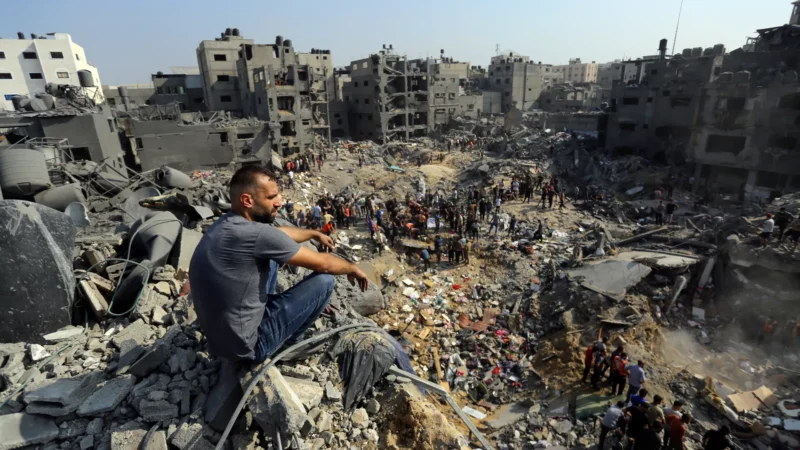Israel says there is no change to status-quo at Jerusalem mosque compound

Dome of the Rock is seen from inside Al-Aqsa Mosque through a doorway to the compound known to Muslims as Noble Sanctuary and to Jews as Temple Mount, in Jerusalem’s Old City November 16, 2021. Picture taken November 16, 2021. REUTERS/Ammar Awad
JERUSALEM, April 21 (Reuters) – Israel said on Thursday it was enforcing a long-standing ban on Jewish prayer at the compound of Al-Aqsa mosque in Jerusalem, rejecting an Arab League accusation that it was allowing such worship to take place.
Violence at the compound, revered in Judaism as the Temple Mount and by Muslims as the Noble Sanctuary, has surged over the past week, raising concerns about a slide back into wider Israeli-Palestinian conflict.
Israeli security forces have been on high alert with the Muslim holy month of Ramadan coinciding with the Jewish holiday Passover and Christianity’s Easter.
Register now for FREE unlimited access to Reuters.com Register
The Arab League said Israel has broken the status quo and was allowing Jews to pray at the compound, calling it a “provocation.” Israel, however, said there has been no change in its long-standing ban on Jewish prayer at the flashpoint site.
“Israel is maintaining the status quo, which includes the freedom of prayer for Muslims and the right to visit for non-Muslims. The police enforce the ban on Jewish prayer,” said Lior Haiat, a spokesperson for Israel’s Foreign Ministry.
“Over the last few years, Israel is not allowing Jews to visit the Temple Mount during the last 10 days of Ramadan to prevent any friction,” he said.
That 10-day period starts on Friday.
A U.S. State Department delegation met separately with Israeli and Palestinian leaders to try to ease tensions.
Palestinian President Mahmoud Abbas told the delegation that Israel was responsible for the escalation and asked that the United States intervene, according to a Palestinian Authority official.
Israeli Foreign Minister Yair Lapid discussed with the U.S. envoys “Israel’s efforts in this very challenging period to preserve the status quo on the Temple Mount,” and called on regional leaders to help restore calm, according to a ministry statement.
The future of Jerusalem is at the heart of the Israeli-Palestinian conflict. The Old City is in East Jerusalem, captured by Israel in a 1967 war and annexed in a move that has not won international recognition.
Palestinians want East Jerusalem to be the capital of a state they seek to establish in the occupied West Bank and Gaza.
Register now for FREE unlimited access to Reuters.com Register
Reporting by Ari Rabinovitch, Nidal al-Mughrabi and Ali Sawafta; Editing by Leslie Adler and Jonathan Oatis
Our Standards: The Thomson Reuters Trust Principles.






